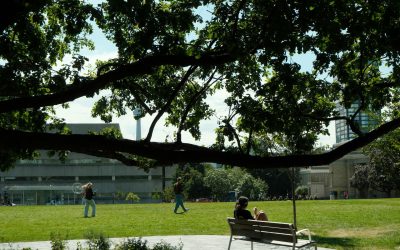The reform of the higher education financial autonomy system is a strategic objective in Kyrgyzstan’s broader transformation agenda for the sector. Addressing this challenge requires a holistic approach, one that considers not only legislative frameworks but also institutional needs, management capacities, and long-term sustainability. This is the vision at the core of the DEFA project – Development of Financial Autonomy of Universities in Kyrgyzstan, co-funded by the Erasmus+ Capacity Building in Higher Education (CBHE) programme.
Since its launch, the project has addressed the topic of financial autonomy from multiple angles – policy, institutional practices, performance monitoring, and stakeholder engagement – through a series of thematic workshops. Previous events in Karakol (June 2024) and Bishkek (March 2025) laid the groundwork for dialogue and knowledge exchange across universities and between national and European partners.
The latest milestone in this process was the DEFA workshop hosted by Naryn State University (NSU) from 10 to 13 June 2025, which brought together institutional leaders, ministry officials, and international experts to review achievements, plan final actions, and reinforce joint efforts to implement sustainable financial autonomy across the Kyrgyz higher education system.
A national space for reflection and coordination
The workshop in Naryn provided a crucial moment for collective reflection, coordination, and planning among all actors involved in the DEFA project. Participating universities presented updates on their progress in implementing the national model for financial autonomy, developed and refined during the project through a very committed institutional engagement.
Discussions highlighted the practical application of 3 key outputs developed within the project:
- the 2024–2030 Strategy and Roadmap for Financial Autonomy, which offers a national roadmap with shared objectives and reform priorities.
- the Financial Autonomy Model, which outlines the core structural and procedural elements of institutional autonomy.
- the Model Implementation Guide, which supports universities in adopting and adapting the model through a step-by-step methodology aligned with their specific contexts.
Together, these tools support a holistic approach to university autonomy – connecting legal frameworks, financial management practices, capacity building, and stakeholder engagement. The resources have already contributed to promoting a culture of strategic planning, accountability, and sustainable institutional development within partner universities.
Beyond individual institutional updates, the workshop also focused on aligning the final project activities and defining concrete steps to ensure consolidation and sustainability of DEFA results in the national higher education landscape according to the developed General Exploitation Plan.
European expertise for sustainable change
The workshop featured strong contributions from the European partners of the project, whose involvement is central to the project’s capacity-building component. These sessions focused on transferring methodologies, building skills, and reflecting on models already in place across Europe:
- Otto-von-Guericke University Magdeburg (Germany) explored the theme “Balancing trust and control: how to develop a fruitful relationship with partners?”, drawing on research in higher education management. Their session examined how trust-based governance, combined with clear accountability frameworks, can enhance institutional cooperation and autonomy.
- Università degli Studi di Firenze (Italy) presented a session on “Financial narrative reporting: a holistic vision to boost trust and engagement”. The session encouraged universities to adopt narrative and strategic approaches to financial reporting to strengthen stakeholder relations and institutional transparency.
- CESIE ETS (Italy) led a discussion on “Financial autonomy of universities and EU project management: links and opportunities”. Their contribution illustrated how participation in EU-funded programmes like Erasmus+ can enhance financial management skills, encourage strategic planning, and contribute to wider organisational development.
Looking forward
The DEFA workshop in Naryn represented both a moment of consolidation and a forward-looking opportunity. With the project entering its final phase, discussions focused on sustainability, impact, and the institutionalisation of results. Kyrgyz universities are now better equipped – with tools, models, and international perspectives – to continue advancing toward effective financial autonomy.
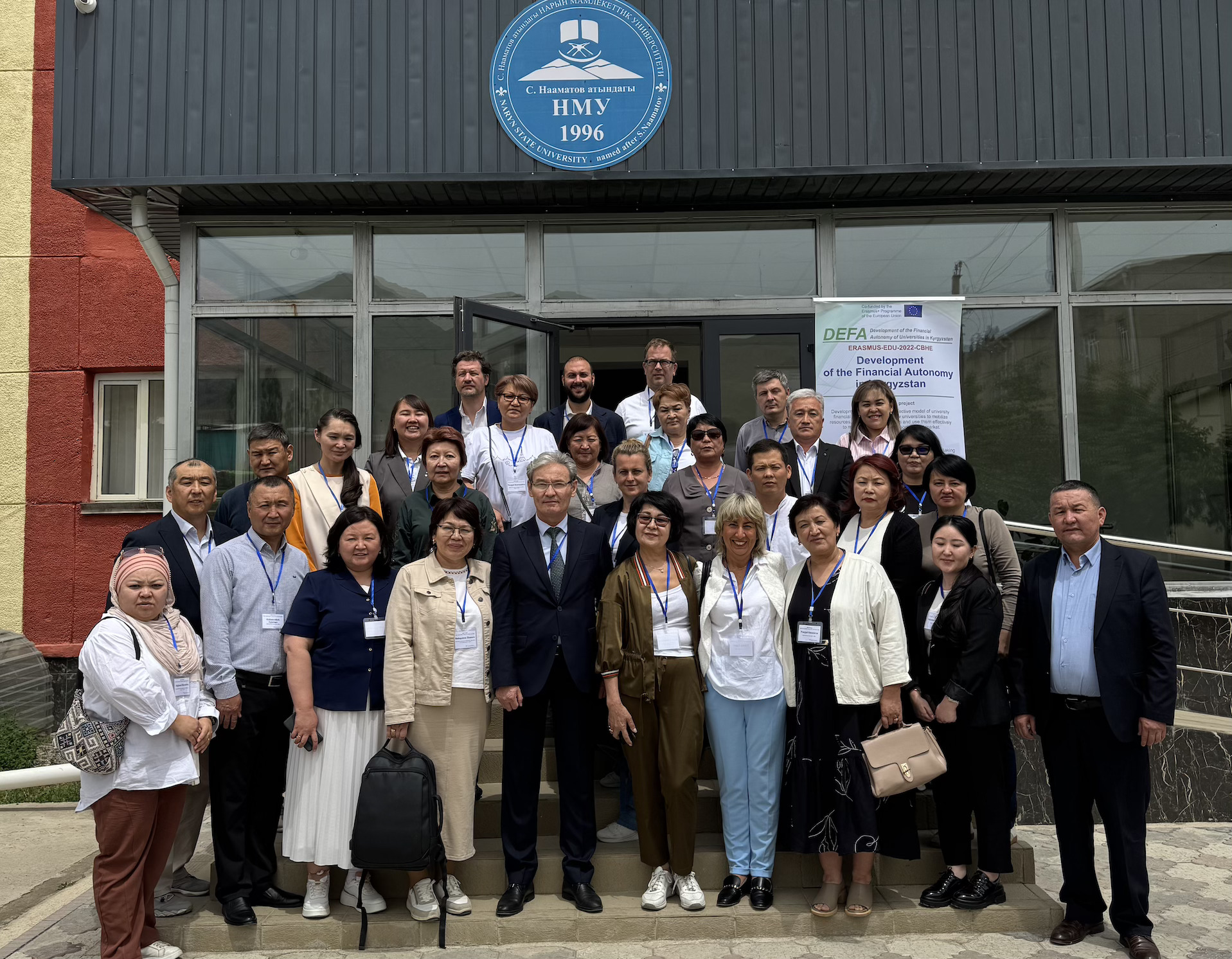
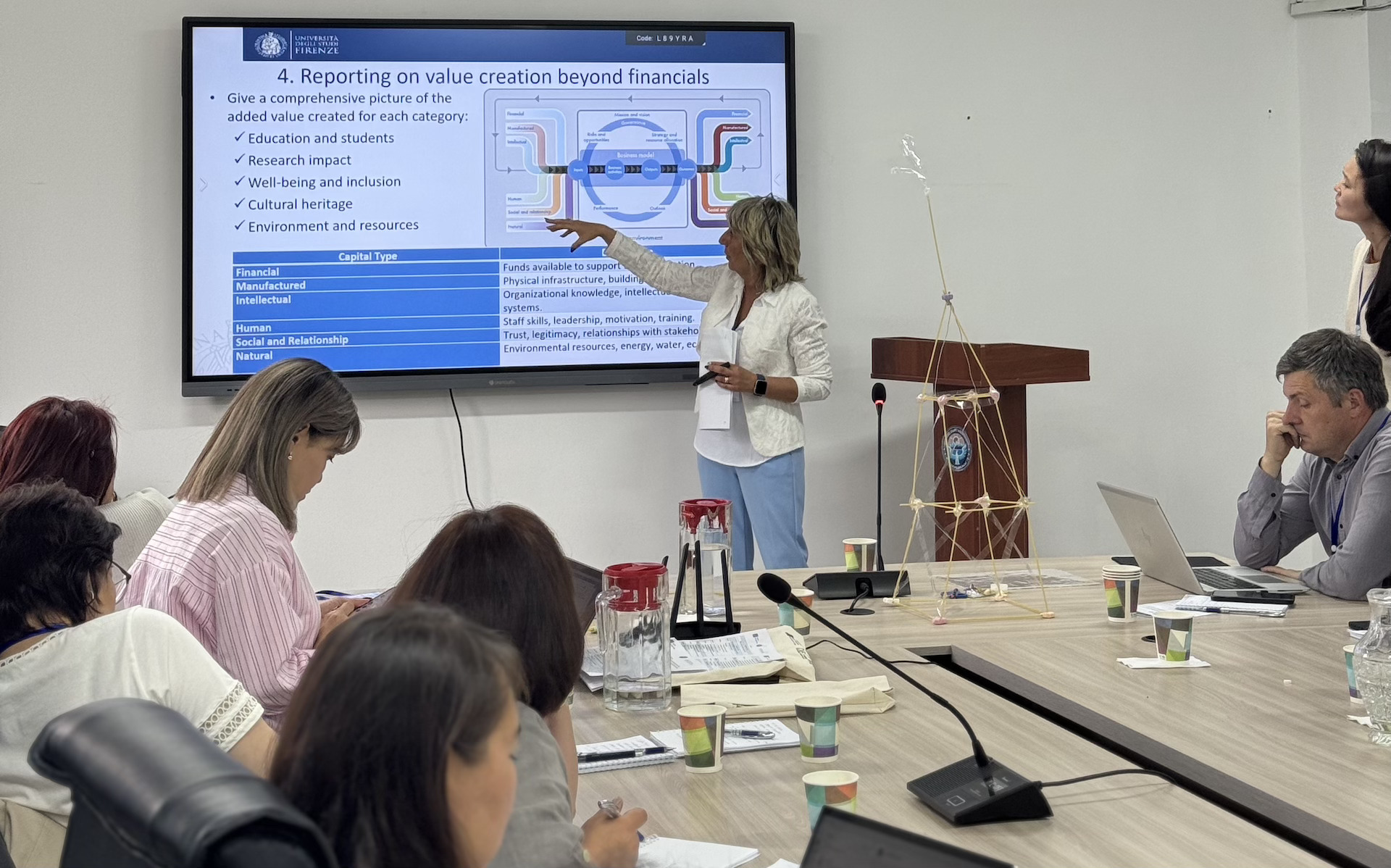
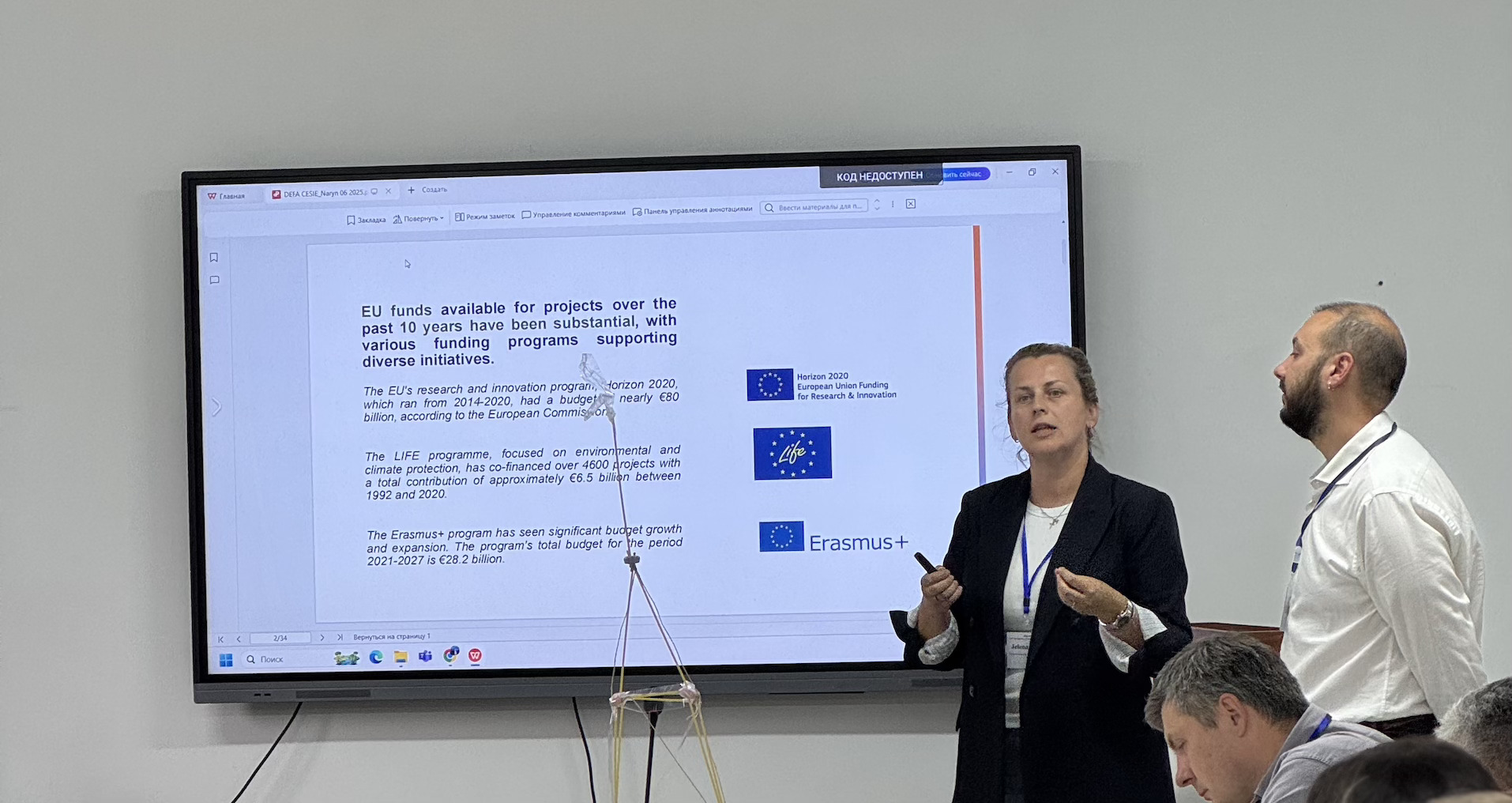
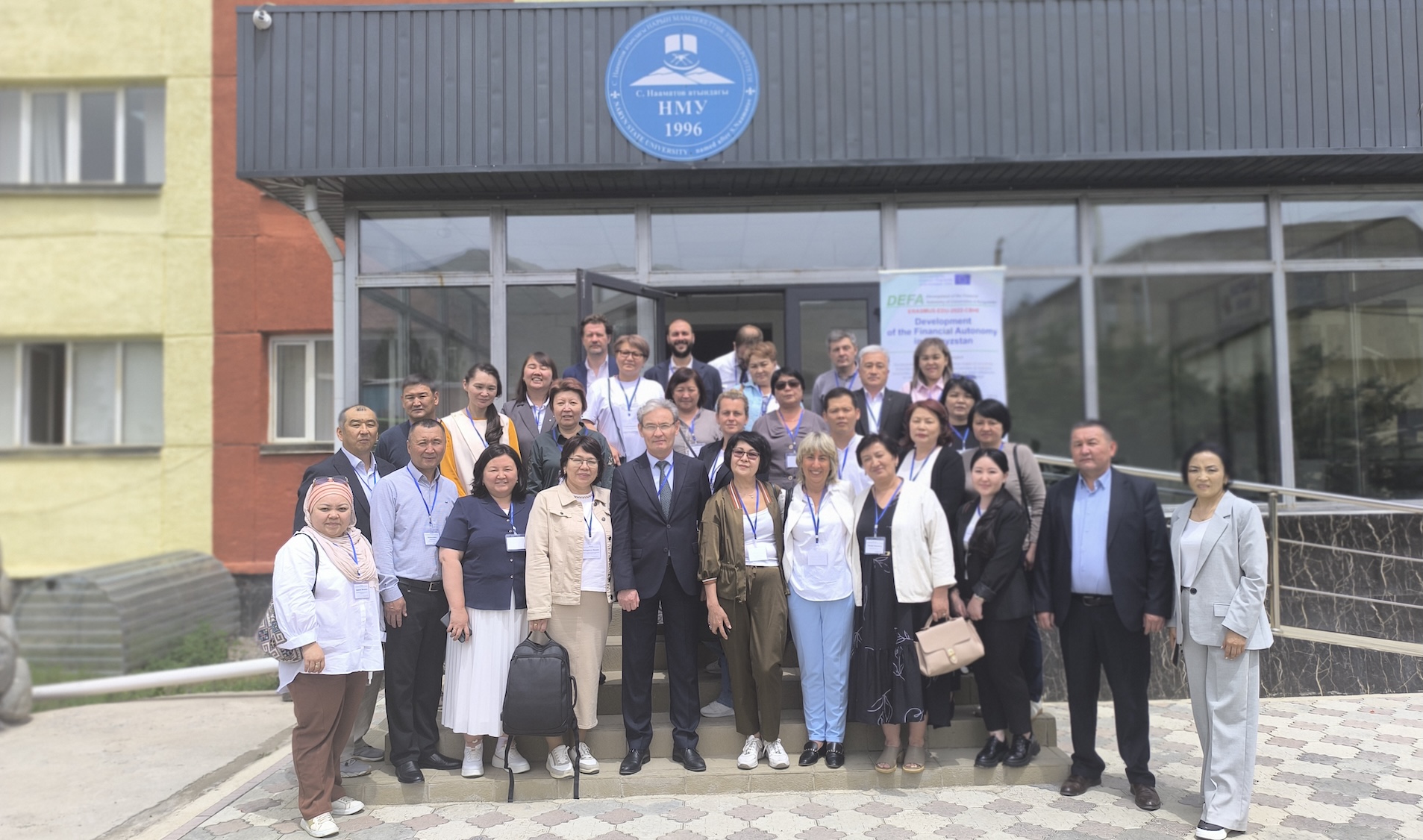
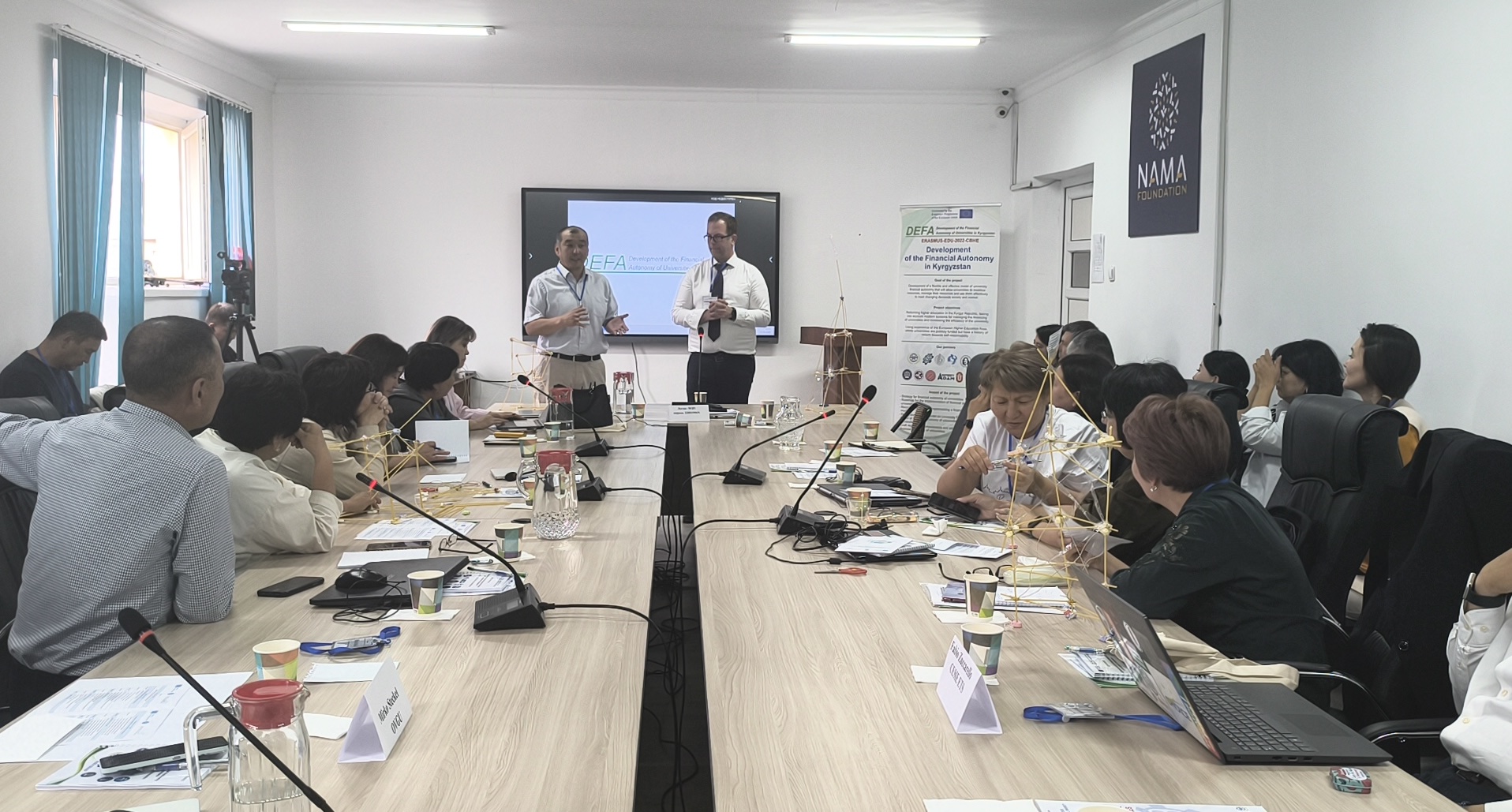
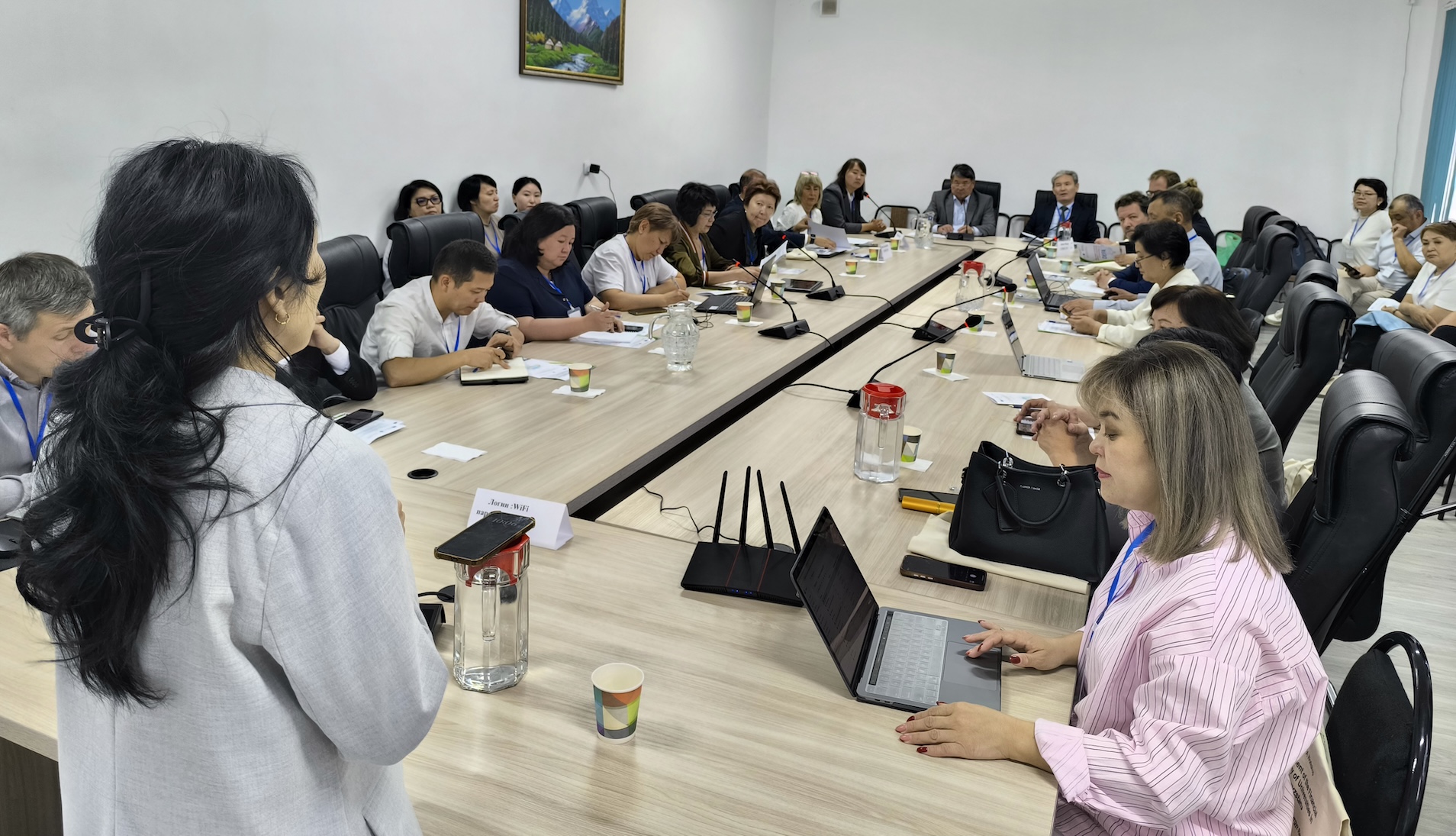
About the project
DEFA – Development of financial autonomy of universities in Kyrgyzstan is a project funded by the program DG EAC, Erasmus+, KA2 Capacity Building Higher Education. It has the objective of implementing a reform of the financial management systems of Kyrgyzstan universities that favors greater university autonomy, competitiveness and innovation.
Partners
- KSTU – Kyrgyz State Technical University named after I. Razzakov (Kyrgyzstan, Coordinator)
- DA MFA KR – Uchrezhdeniye Diplomaticheskaya Akademiya Ministerstva Inostrannykh Del Kyrgyzskov Respubliki Imeni Kazy Dykambayevicha Dikambayeva (Kyrgyzstan)
- IUK – International University of Kyrgyz Republic (Kyrgyzstan)
- IUK – Issykkul State University Named After K.Tynystanov (Kyrgyzstan)
- OshSU – Osh State University (Kyrgyzstan)
- TalSU – Talas Mamlekettik Universiteti (Kyrgyzstan)
- NSU – S. Naamatov Naryn State University (Kyrgyzstan)
- AU – Adam University (Kyrgyzstan)
- ISM – International School of Medicine Institution (Kyrgyzstan)
- AIU – Ataturk-Alatoo International University (Kyrgyzstan)
- AVUZ – Association of legal entities “Association of Universities of the Kyrgyz Republic” (Kyrgyzstan, Partner associato)
- MES KR – Ministry of Education and Science of the Kyrgyz Republic (Kyrgyzstan, associate partner)
- OVGU – Otto-Von-Guericke-Universitaet Magdeburg (Germany)
- CESIE ETS (Italy)
- UNIFI – Universita Degli Studi Di Firenze (Italy)
For further information
Read more about the project and follow us on Facebook.
Contact Alessia Valenti: alessia.valenti@cesie.org.








